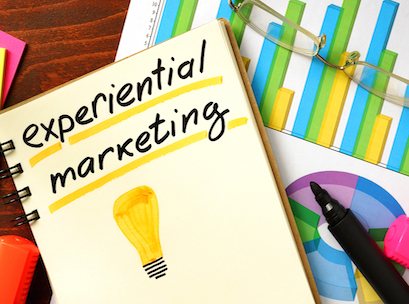 Experiential marketing is an up and coming trend in consumer engagement that offers brands a wealth of opportunities.
Experiential marketing is an up and coming trend in consumer engagement that offers brands a wealth of opportunities.
Experiential goes a step further than mere sampling, winning a contest or gluing logos to events hoping your audience will connect the brand to their favourite band or sports team, so commonly seen in FMCG marketing.
With experiential (not to be confused with ‘experimental’) marketing, brands can offer a positive, real experience to their target audience, where consumers can touch, smell, taste, feel and interact with the product in a manner that touches on imagination and experience and results in meaningful, positive consumer involvement.
Within experiential, brands usually emphasise their key values and qualities by showing or offering something consumers otherwise don’t get to do or don’t have access to. Within FMCG some good examples are the simple but effective idea of an interactive vending machine, which Australian juice brand, Nudie, took, but also the very advanced stunt that Red Bull did with Stratos Jump breaking through the sound barrier by a free fall stunt.
Experiential marketing in FMCG is not limited to cool soft drinks; it can just as well touch on causes and social change, like SKII did with their #changedestiny campaign, most remarkably noticed in their recent “Sheng Nu” campaign in China addressing social stigma around unmarried women. Experiential marketing can be used by any type of brand to present their values and benefits, provided the campaign touches the intersection of the brand values, consumer interest, and sentiment or excitement of the target audience.
Experiential marketing is happening primarily in the real, physical world. Social sharing and online coverage can support it, or can be the fruit of the campaign, potentially resulting in free PR on major blogs, social channels, print media and even TV channels. If the experiential campaign relates to a topic the public can connect with, a well-executed marketing outing could gain broad media attention or just the favour of local shoppers.
Shopping malls and local stores are an ideal place for experiential marketing because they attract a large number of people searching for new products and wanting to experience something new. A well-executed experiential marketing campaign can foster both direct sales, as well as online and offline engagement, resulting in longer-term sales increases and more loyal brand lovers.
A great experiential campaign is not easy to compose, as it needs to cover brand values, consumer interest and have a critical ‘wow’ factor, while also being legitimately appealing and engaging. Effective experiential marketing campaigns take great creative juices and vision to come up with, and then require impeccable precision to execute. But if done well, they can give a big boost to consumer brands.
Victor David is Marketing Manager at Experiential Marketing Agency Designteam















